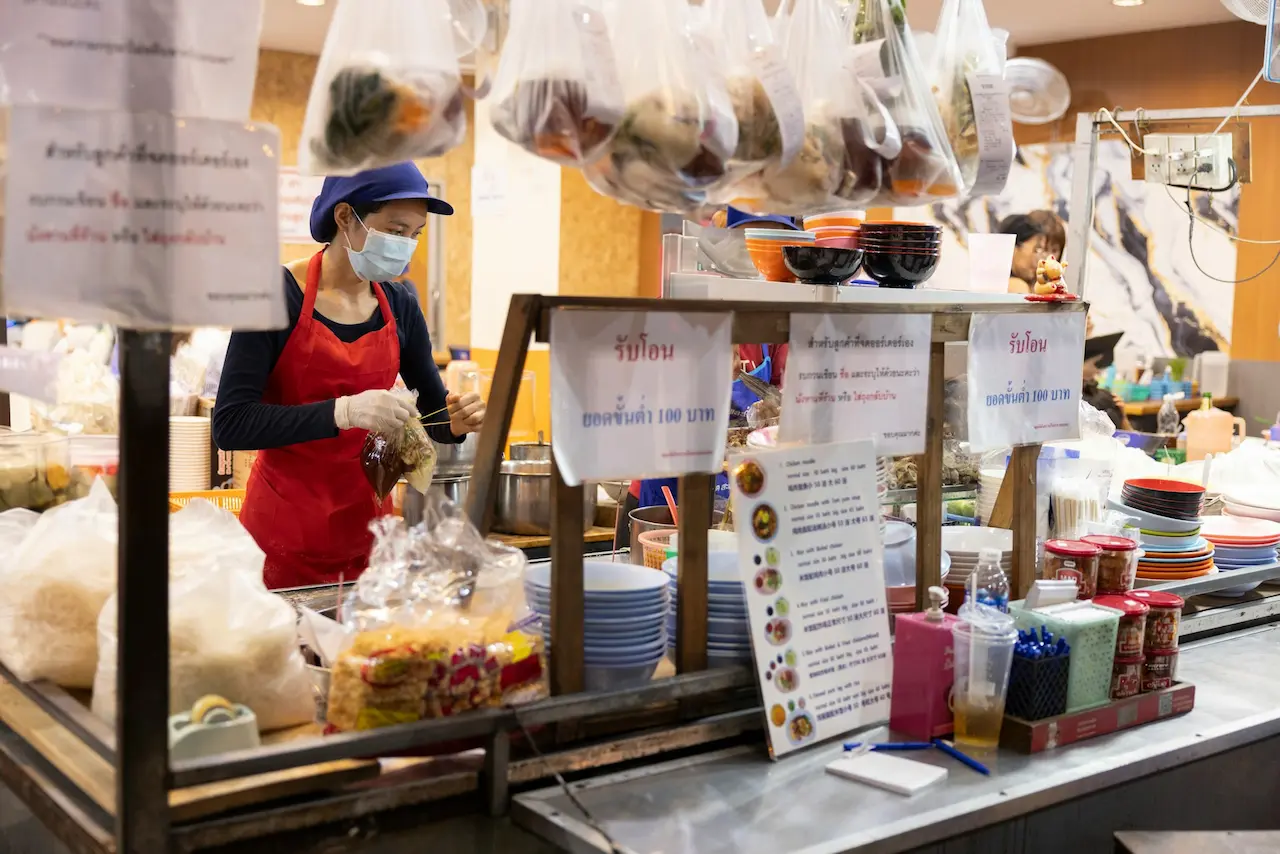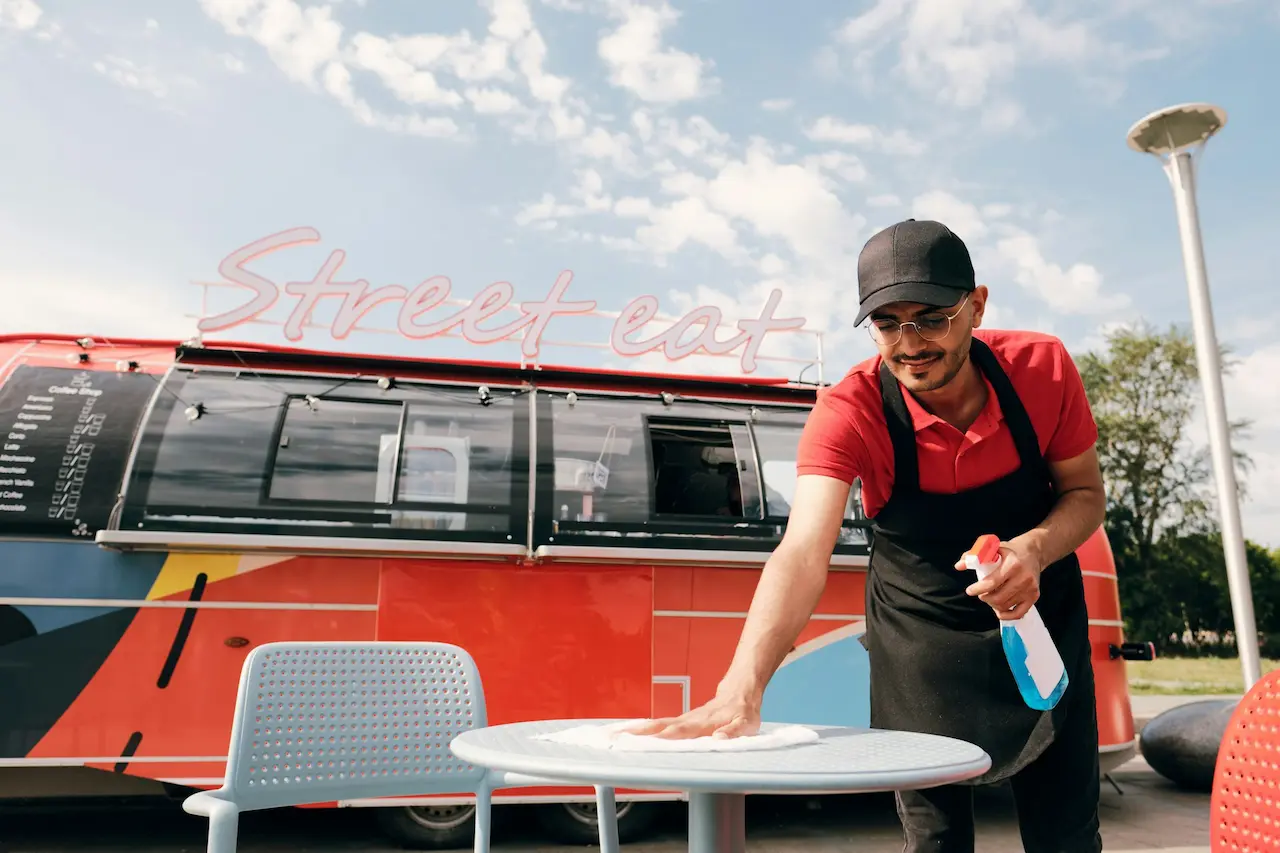6 Cost Considerations When Starting a Food Truck in Sydney
Thinking about cooking up a new business venture like hitting the road with your own food truck in Sydney? What a delicious idea! The food truck scene is abuzz in Sydney, from Surry Hills’ popular laneway eats to small pop-ups along the beaches and coastlines like Bondi and Cronulla. There is nothing more tantalising to the senses than the aroma of global flavours wafting through the air.
Table of Contents
ToggleHowever, before you decide on serving your first crispy yet juicy banh mi or irresistible yet messy burger, it’s vital to take into account the costs behind those tasty eats on wheels.
Getting started with a food truck isn’t just about finding the perfect spot to settle for the day or creating a mouth-watering menu; it’s also about careful budgeting and inventory management. From insurance to permits, and even sneaky hidden expenses, planning ahead will set you up for success instead of stress.
We’ve broken down the six essential costs that you’ll need to keep front of mind before you cook up your plans to set up your food truck in the streets of Sydney.

1. Buying, Leasing or Building Your Food Truck?
Your truck is your mobile kitchen, billboard and business all rolled into one! The truck houses your branding, ingredients, and of course, staff, so choosing one that suits you and your financial situation is imperative, as costs can swing wildly depending on the path you choose. Here are some options that you can choose from:
- Purchasing New: A custom-fitted new truck can cost from $80,000 to over $200,000, depending on features, size, and fit-out.
- Buying Second-Hand: You might snag a well-equipped used truck for $50,000 or less. Always get an inspection and check previous compliance certificates.
- Leasing Options: Leasing can ease the upfront financial hit, but ongoing monthly payments may affect your cash flow and profits.
- DIY Builds: Handy with tools? Custom builds can save money, but don’t forget certification, plumbing, and electrical work costs.
It’s also important to look for trucks designed for Australian roads and weather conditions, as both can be quite unpredictable. Maintenance and safety should also be top of mind when taking cost into consideration. Watch out for older vehicles as they can become costly if they’re always needing repairs.

2. Registration, Insurance, and Green Slips
You can’t hit the road in NSW without registration and adequate insurance. Don’t forget about compulsory third party (CTP) insurance, which is also called a ‘Green Slip’, which covers liability if someone is injured in an accident involving your truck. The price varies based on your driving record, truck size, and insurer, but for an average food truck, expect costs starting from around $600 annually and upwards.
For a smooth start to your food truck journey, you can get a Green Slip with a provider like NRMA Insurance, ensuring you’re adhering to NSW legal regulations and protected from day one.
Keep in mind that this is just the mandatory minimum, and comprehensive commercial vehicle insurance is highly recommended. This protects you against damage, theft, and unexpected roadside mishaps.
Additionally, consider the costs of:
- Registration fees and heavy vehicle charges
- Public liability insurance, to protect against accidental injury (often required for events and council permits)
- Product and fire insurance, crucial if you’re using gas appliances for your delicious food truck meals
3. Council Permits and Compliance Costs
Depending on where you set up shop, you’ll need the right council approval to operate in your chosen Sydney area. Permitting costs will vary by LGA (Local Government Area) and will, at times, come with certain extras like mobile vendor permits in high traffic areas or event spaces.
Additionally, to serve food in NSW, you will need a Food Business Registration certificate from the NSW Food Authority. Fees often range from $300–$1,000 annually and include compliance such as health inspections, food safety plans and waste disposal requirements that aren’t included, like eco-friendly packaging and disposal bins.
It’s smart to chat with other local operators or check Sydney Food Trucks’ business tips, as regulations and requirements for your food truck can be a little confusing.
4. Fitting Our Your Kitchen With Equipment
A food truck is more than four wheels, a cook and a fry pan. Kitting out your mobile kitchen will eat up a big chunk of your start-up funds, so it’s important to only opt for the essentials to start. Standard equipment you may need includes:
- Commercial-grade fridges and freezers
- Gas or electric cooktops, ovens, and deep fryers
- Food warmers and prep benches
- Sinks with hot water systems for hygiene compliance
- Exhaust hoods and fire suppression
Depending on how fancy you’re going with your menu, a fit-out can run anywhere from $20,000 (for a basic setup) to more than $80,000 for a professionally finished, high-end kitchen. Don’t forget small items like utensils, safety kits, and extra storage for events and emergencies.
Pro tip: Always choose appliances with Australian certifications and get everything installed by a licensed professional to avoid headaches during council inspections.
5. Food Safety Operating Licences
Australia has strict food safety standards, and Sydney is no exception. Serving your first customer comes with a collection of courses, training and audits to keep you and your food truck accountable.
A main course you’re not going to want to miss is the Food Safety Supervisor Course for you and your team. This certification is required to be held by one team member, along with staff training in food safety and first aid. The course costs around $180–$250 and will help in situations including hygiene and safety audits by local councils that, if failed, can have you facing additional fees.
The cherry on top of food safety is effective food inventory records to ensure everything is safe to eat for your customers. Some businesses opt for digital tracking systems for inventory, food temperatures, and staff logs, which can save time but incur a monthly cost for the software.
Curious about how to keep your team safe and up to speed? Take a look at these straightforward OH&S basics every food truck should know.
6. Ongoing Expenses
Now that you’ve checked the absolute must haves for your food truck, it’s time to consider your daily grind and on-going expenses like ingredient sourcing, staffing and most important of all, selling your food. Here are a few tips that you can use when considering ongoing expenses for your food truck.
- Ingredient Costs: Consider negotiating with local suppliers for fresh, quality ingredients. Bulk buying saves money, but remember that you’ll need storage solutions if you have a lot of ingredients that are being stowed away.
- Menu Changes: To keep it fresh and your regulars on their toes, update your menu seasonally or add in local cuisine for your different sites. This can positively, and negatively, impact your costs and pricing but is a great way to keep your food truck feeling fresh.
- Paying Your Staff: Staff costs depend on hours and experience, but expect casual wages (plus super and tax) to make up a fair slice of your expenses.
- Fuel and Vehcile Maintenance: Sydney’s traffic is legendary for being very slow. Take into account fluctuating fuel costs, vehicle wear and tear like tyres or even breakdowns that can set you back unexpectedly.
- Marketing: Don’t overlook branding, social media, or event listings – check out Sydney Food Trucks’ tips for budget-friendly marketing and getting the word out to hungry Sydneysiders.
- Packaging and Utilities: Custom-printed packaging, biodegradable containers, and even things like Wi-Fi connectivity for EFTPOS machines all add up.
Ready to Roll? Know Your Costs, Find Your Crowd
Launching a food truck in Sydney is an exciting adventure full of flavour, community, and creative freedom. But Sydney’s most successful mobile kitchens didn’t roll onto the scene by luck. They started with a meticulous cost plan, local knowledge, and a passion for serving up something special.
By understanding these six key cost considerations, you’re already in front of the curve. If you’re eager for more smart tips and the latest food truck insights, don’t forget to check out helpful resources on Sydney Food Trucks’ blog before you hit the road.
